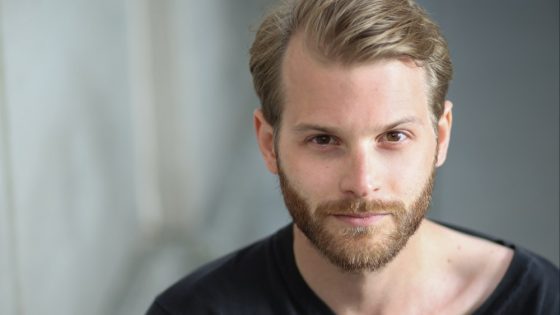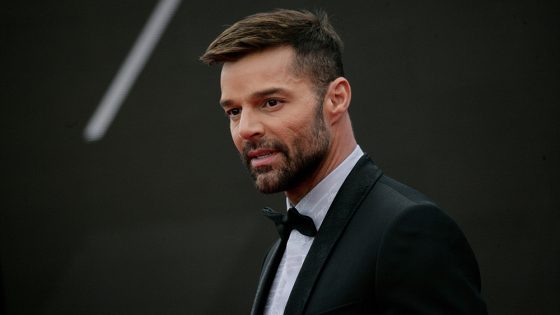In the past decade, Swedish-Polish filmmaker Magnus von Horn has become something of a fixture on the French Riviera, with his latest film, “The Girl With the Needle,” the director’s third feature to debut at the Cannes Film Festival and his first to compete for the Palme d’Or.
But the dark historical drama, which is set in post-WWI Copenhagen, marks a departure for the 40-year-old. Von Horn’s previous features — the 2015 Directors’ Fortnight breakout “The Here After” and his 2020 Cannes selection “Sweat” — are stories of loneliness and isolation spun from the fabric of contemporary life. The director’s first foray into period drama, “The Girl With the Needle” uses the past to tell a very modern story that centers on class, choice and the politics of women’s bodies.
Written by von Horn and Line Langebek (“I’ll Come Running”), the film is loosely based on the real-life story of a Danish woman who set up an underground adoption agency to help poor women dealing with unwanted pregnancies. It stars Vic Carmen Sonne (“Godland”) as Karoline, a young factory worker who’s abandoned by her lover after she falls pregnant and soon finds herself unemployed with nowhere to turn.
That’s when she meets Dagmar, played by Danish standout Trine Dyrholm (“Queen of Hearts”), a charismatic shopkeeper who helps the destitute mothers find foster homes for their children. Karoline takes on the role of a wet nurse and forms a powerful attachment to the older woman, only for her world to turn upside-down when she discovers a shocking truth.
Lensed in black-and-white by cinematographer Michal Dymek, “The Girl With the Needle” is von Horn’s first stab at genre filmmaking. With its macabre twists and echoes of the Brothers Grimm — Dagmar’s shop is, naturally, a candy store — he describes it as a “fairy tale for grownups.” Among the director’s inspirations was David Lean’s 1948 adaptation of Charles Dickens’ “Oliver Twist,” a film he admires for its elaborate set design that created a distinctive atmosphere in its evocation of Victorian England.
Von Horn’s depiction of early 1900s Copenhagen is convincing and sufficiently gritty; the dirt all but gets beneath your fingernails. But the director sees “The Girl With the Needle” as a decidedly contemporary story about women’s rights, citing the example of Poland, which introduced a near-total abortion ban in 2020.
“It’s a society that’s … making it more and more difficult for women to have their own choice or the power over their own body, [which is being] controlled by politics and the church,” he says. “In the battle of having the right to decide for yourself, that’s not so different today than it was back then.”
The director nevertheless says his female protagonists shouldn’t be seen merely as pawns of a patriarchal society. “It would be easy to make Karoline into a victim,” he says. But though her circumstances are “cruel and brutal,” the young mother has enough agency to make her own choices, even if that leads her to fall under Dagmar’s seductive spell. “Sometimes it might be easier to flirt with the devil than to stand up for [your] morals,” says von Horn. “The devil becomes attractive.”
Vic Carmen Sonne stars as Karoline in von Horn’s Palme d’Or contender.
“The Girl With the Needle” (Courtesy of Lukasz Bak)
“The Girl With the Needle” is produced by the Nordisk Film Creative Alliance in co-production with Lava Films and Nordisk Film Production Sverige. It’s co-produced with Film i Väst, EC1 Łódź Film Fund and the Lower Silesia Film Center and co-financed by the Danish Film Institute, the Polish Film Institute, the Swedish Film Institute, DR, SVT, Nordisk Film & TV Fond and Eurimages and Creative Europe Media. The producers are Malene Blenkov and Mariusz Włodarski. The executive producers are Henrik Zein, Calle Marthin, Katrine Vogelsang and Lone Scherfig. The Match Factory is handling world sales.
After the success of his 2015 debut “The Here After” — which Variety’s Alissa Simon described as “a calling card for fests on the lookout for new talent” — von Horn was set to return to the French Riviera with his sophomore feature, “Sweat.” But that film was released in the midst of the pandemic, and though it received a Cannes 2020 label and would go on to have a healthy festival career, the director confesses that he was disappointed to miss out on a glitzy Croisette premiere.
“Not having the experience, it was a big anti-climax, and just having that film existing in a very digital world, where I was always meeting people or watching reactions through a screen,” he says. Ascending the steps of Cannes’ fabled Grand Théâtre Lumière to bow “The Girl With the Needle,” he adds, will be the fulfillment of a lifelong dream. “I’m nervous, I’m thrilled and I’m very happy to go there and have the full [Cannes] experience.”
Source Agencies




